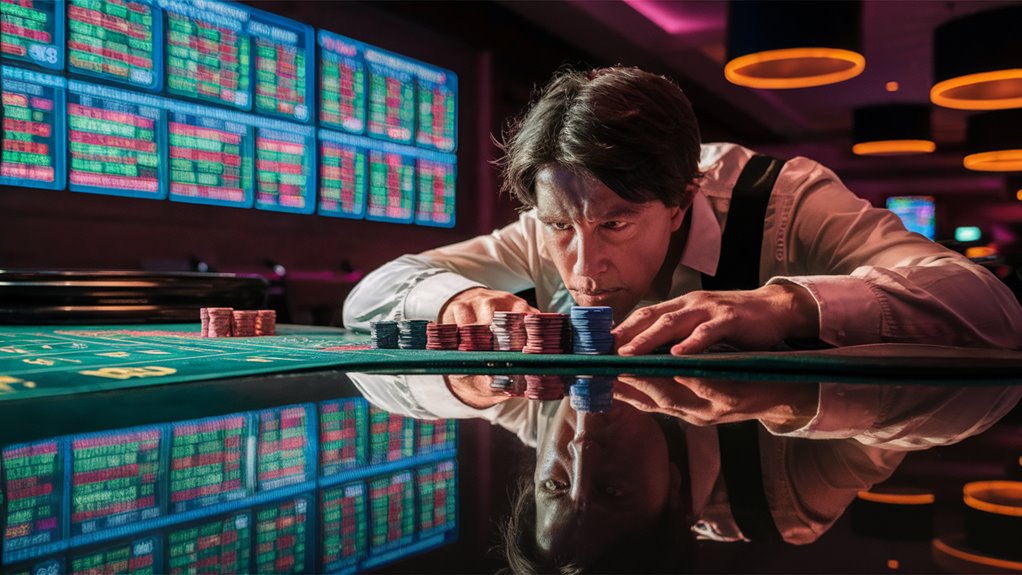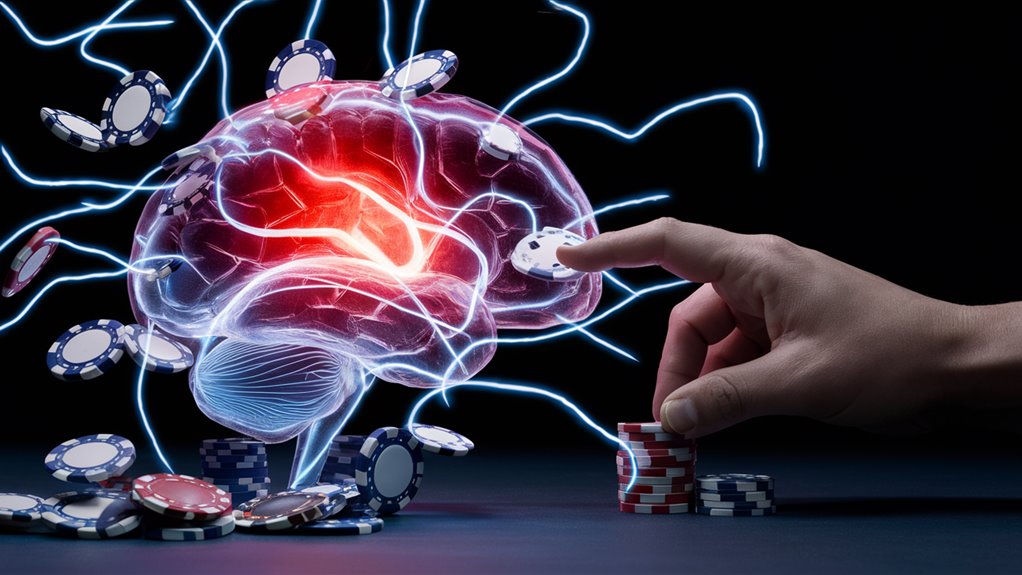The Mind and Betting: The Link Between the Mind and Brain

How the Brain Acts When Betting
When you bet, your brain fires up strong reward paths that release a lot of dopamine when you look for a win and when you get one. This brain activity, mixed with deep-seated mind tricks, can block your clear thinking. 토토사이트먹튀검증
Thought Routes and Choices
The front part of the brain, which handles risk and thought, often falls to feelings when it comes to bets. Fast thought routes and quick choices craft how we view betting options. Two main mind trends affect how we bet:
- Better’s Fallacy: The false belief that past events affect what will happen next
- Confirmation Bias: Paying attention only to what supports what you already believe about your bets
Groups and Culture Effects
Group influence and cultural habits really shape how we bet. Peers can lead to risky actions through:
- How groups view risk
- Approving gambling choices by the group
- Seeing gambling as normal in the culture
Understanding these deep thought processes explains why gambling pulls us in and steers our actions in big ways. The mix of brain responses, mind tricks, and group elements creates a set pattern that makes us gamble in many ways and times.
Learn About the Brain’s Happy Role in Gambling
The Nerve Job of Happiness and Gambling
The brain’s happy area works like a complex nerve network that changes how we gamble with strong body reactions.
Dopamine, a main brain chemical tied to joy and the expectation of a reward, is released when you gamble. This nerve reaction happens not only when winning but a lot during the anticipation phase before the outcome is known.
Nerve Routes and Giving Signals
The central happy area and front brain part are key spots for processing rewards and making choices in gambling. These brain sections create strong feedback signals through repeated use.
Indeed, near-wins make the brain react as if real wins occurred, keeping gambling ongoing even in loss.
Changing Happiness Tips and Addiction Risk
The variable happiness tips recognized in gambling strengthen brain reactions by alternating reward patterns. This matches observations in labs where unpredictable rewards increase activity.
The brain’s natural happiness mechanisms, evolved for survival and learning, become vulnerable to excess due to this, as these nerve routes cannot differentiate between beneficial and harmful sources of happiness.
Understand Mind Tricks in Gambling

Common Mental Traps in Gambling Choices
Making decisions in gambling often runs into ingrained mental errors from deep mind tricks. These fast mental paths influence gambling a lot and decisions about money in games.
The Better’s Fallacy
The better’s fallacy is a common misunderstanding in probability where gamblers incorrectly think that past events change what happens next. For example, after red appears often in roulette, players mistakenly believe black is “due next” – despite each spin being independent.
Confirmation Bias in Gambling
Confirmation bias appears when gamblers look for information that supports their previous beliefs while ignoring other indicators. Viewing information in this way can lead to poor gambling decisions and missed opportunities to spot winning strategies.
Cost of Past Loss and Overconfidence
The cost of past losses heavily affects gambling. When losses pile up, gamblers often keep playing to recover lost money – a strategy not supported by math that often leads to more losses. Overconfidence makes gamblers overestimate their ability to predict outcomes. Additionally, what’s visible leads us to place too much importance on recent or significant events when assessing chances, distorting clear decision-making.
Reducing Mental Tricks
Recognizing these mental processes helps gamblers understand when tricks may influence their thinking. Though we cannot completely eliminate mental tricks, awareness allows us to make clearer gambling decisions and manage risks better.
Group and Cultural Influences on Gambling Behavior
Groups and Gambling Behaviors
Groups and cultural practices shape gambling behaviors across societies. Social circles establish strong norms, often seen in activities like sports betting and traditional card games. These behaviors vary widely among groups, from strict taboos to major social events, affecting how individuals view gambling as acceptable.
Online Influence and Social Spaces
The web’s gambling spaces have transformed traditional gambling. Social networks extend gambling’s reach, creating online communities that share betting strategies, winning tactics, and common gambling behaviors. Celebrity endorsements in the gambling world have altered advertising approaches, with betting platforms using celebrity support and social approval to expand further.
Family and Cultural Mix
Family gambling habits deeply influence how we gamble, with parental gambling behaviors strongly predicting children’s gambling activities. Cultural gambling activities, like company sports pools and holiday gaming events, embed gambling deeply in social connections. These cultural ties forge deep links between gambling behaviors and community participation, turning gambling decisions into shared cultural actions.
Main Group Factors That Influence Gambling:
- Peer pressure to start gambling
- Cultural views on gambling
- Online community influence Online Is More Convenient Than Visiting Casinos
- Family gambling habits
- Social space impact
- Community gambling events
Evaluating Risk Strategies in Gambling Behaviors
Main Aspects of Evaluating Risk
Evaluating risk in gambling employs three fundamental approaches: mental processing, emotional signals, and probability assessment. The brain’s nerve pathways, particularly the front brain area, serve as the main region for weighing outcomes against pleasures in gambling.
Mental Processing and Choices
Gambling
